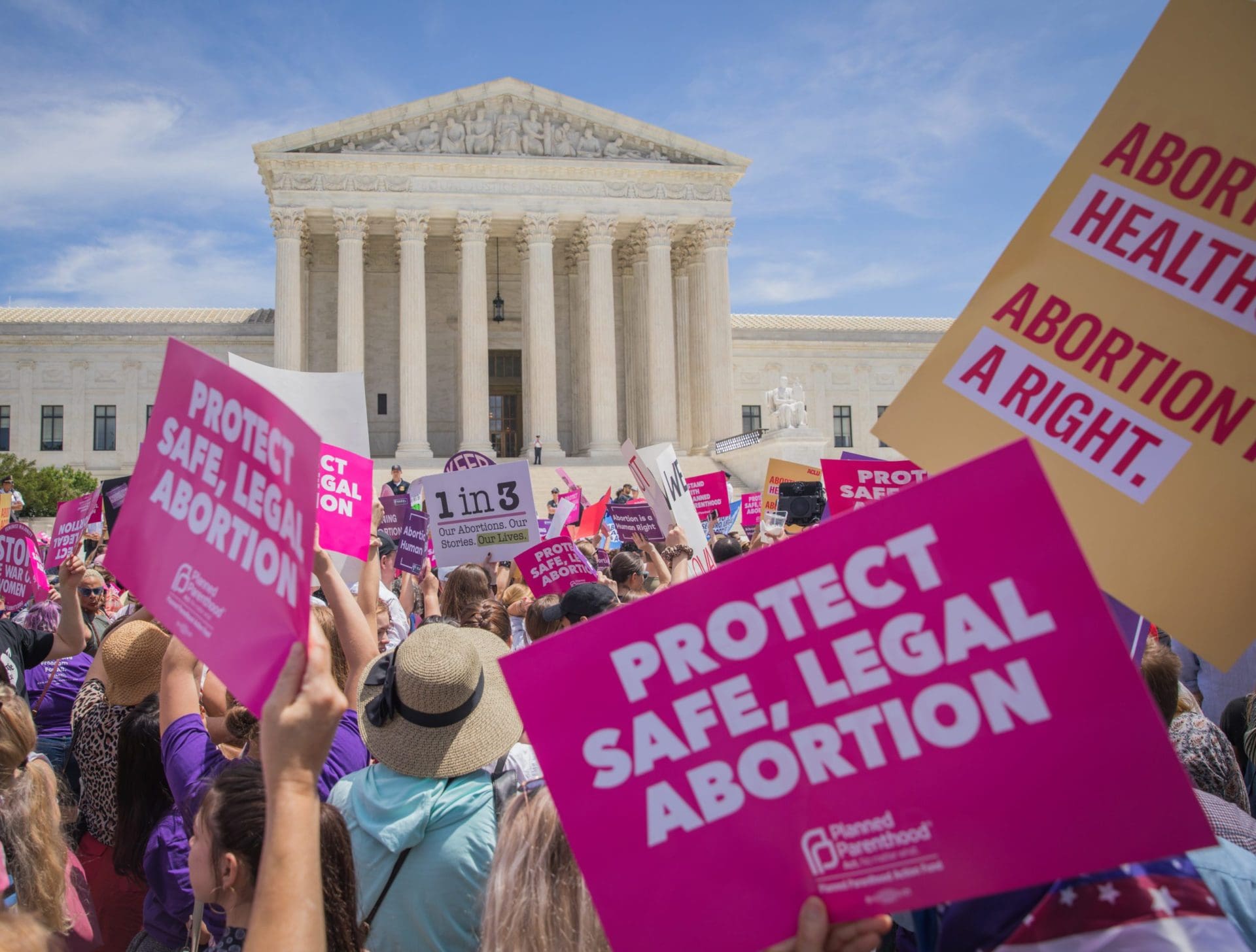Up until now, a 1973 precedence in constitutional ruling known as Roe v. Wade prevented American state legislations from outlawing abortion and cemented women’s right to unrestricted pregnancy termination at least until the end of the first trimester. While abortion rights had always been a subject of heavy debate in the US (much more so than in Europe, for instance) as critics called the ruling a prime example of judicial activism, generally no Supreme Court of the United States (SCOTUS) wished to change it in fifty years, fearing the social and political consequences.
Now it seems the current Supreme Court might have made its mind up, and Roe v. Wade could be overturned as soon as this summer. The revelation came as Politico received an anonymous leak of an initial majority draft from within the Court—written by conservative justice Samuel Alito—which proves the SCOTUS’ intentions. Conservatives currently outnumber liberals serving on the Supreme Court by 6 to 3, so the vote could easily pass even if one of them decides not to support it (due to judicial restraint, Chief Justice Roberts currently does not, according to the leak).
Abortion will become the most heavily-debated issue of the year
Needless to say, the news spread like wildfire, quickly drawing crowds to protest at the Supreme Court in D.C. and various other locations in the US. Pro-choice organizations and activists spent the night mobilizing on the internet, while left-leaning legacy outlets kept producing articles about the SCOTUS’ alleged violation of ‘fundamental human rights’. All signs suggest that abortion (and this current ruling) will become the most heavily-debated issue of the year and will influence the outcome of the November midterms like nothing else. In other words, the short and long-term consequences will be profound, politically and socially alike.

Nonetheless, the damage is done and now America braces for impact. Washington and other liberal-controlled urban centres are preparing for waves of protests, which may turn out similar to the riots of the summer of 2020. The pressure will be enormous on the federal government to try to intervene with a political solution, and that can very well be one of the purposes of the leak. For example, this could give a reason for the Biden administration to go forward with its long-time plan to pack the court, meaning to increase the number of Supreme Court Justices. And since the appointment of new judges fall under the powers of the president, we can be sure that all new members would be liberals—regaining the Democratic control over the institution—which will affect every other SCOTUS decision for a long time to come. At the very least, members of both the political and civil spheres will try to persuade one justice into changing their opinion before June, which is exactly why this leak constitutes such an egregious violation of the Court’s integrity.
This could give a reason for the Biden administration to pack the court
Another longer-term consequence will be regarding the upcoming midterm elections in November 2022. For quite some time now, President Biden’s approval rate has been plummeting (historically, second-worst only to Trump’s at this point in his presidency) and respectively, polls show that the Democratic Party is seriously lagging behind the Republicans with their midterm prospects. The recent row between Disney and Florida lawmakers (regarding the question of teaching about transgenderism to children under nine) did not help the DNC either; as even the majority of Democratic voters sided with conservatives on this particular issue. Now, to boost their chances ahead of the election, they needed a similar policy area with strong bipartisan support on one side, and abortion laws are one of the few. A 2019 survey showed, for instance, that 70 per cent of Americans oppose overturning Roe v. Wade – the highest share in the last three decades. Yes, Republican voters are far more likely to support overturning the 1973 ruling, but that is still only 48 per cent of them compared to the 50 per cent who would rather keep the legislation. It is clear that the SCOTUS leak touched a nerve with the American voters and the GOP will likely be punished for it at the ballots, come November.
Furthermore, we still do not know exactly what kind of fallout the social unrest will cause in the coming months. The protests and riots will not only continue at least until the official decision arrives, but the tensions can also be amplified by each new abortion bill that state legislations can pass after. According to a research project published earlier this year, as many as 23 states are certain or likely to ban or severely restrict abortion if Roe v. Wade is overturned (map below). Some even fear a federal abortion ban, but that is highly unlikely considering the countrywide uproar it would cause, and the GOP leaders already confirmed that such a move is not in their intention – even if they gain control of both houses of Congress later this year.

Therefore, while the upcoming legislative change regarding Roe v. Wade is considered a major victory for the pro-life movement in the US, politically speaking, the leak benefits only the Left. It could give reason for President Biden to pack the Court in the DNC’s favour, and significantly hurt the GOP’s election prospects in the coming midterms, not even mentioning the protests (and possible riots) it could trigger across America.
The right to life is generally recognized and is considered a priority by most conservatives across the West, but it rarely becomes the subject of policy change precisely because of these reasons. Conservative political forces widely acknowledge the moral and ethical arguments of the pro-life side, but also understand that a complete ban on abortion would cause more problems than it would solve, and that the question must come down instead to individual choice and conscience.
Family-centred policies seem to be an effective strategy
For instance, according to an Ipsos poll published last year, 79 per cent of Hungarians support legal abortion (with 59 per cent percent supporting on-demand abortion, while another 20 per cent thinks it should be permitted in certain circumstances), and only 3 per cent thinks it should be outlawed entirely. And while the Hungarian government (and majority of society) is explicitly conservative, these figures alone mean that abortion is not a simple partisan issue for any legislation to temper with. Instead, Hungary focuses its efforts on family-centred policies, which—along with combating the demographic decline—seem to be an effective strategy on the abortion front as well: since Fidesz came into government, the Hungarian abortion rate dropped by nearly 40 per cent.
Of course, there is no universal solution to this problem, and the moral and ideological debates will always go on. The US Supreme Court’s decision to repeal Roe v. Wade, however, is not a political one, but merely a matter of correctly interpreting the Constitution. There is no place for activism in the court, and the federal restriction of state powers by the initial 1973 ruling was precisely that. If it is overturned, it only means that once again it is up to the state legislations to decide what is best for them, in accordance with the democratic principles of subsidiarity. The decision, therefore, is not only right morally but politically too, even if it will badly affect the Republican Party in the long run. But that is what democracy is for.








